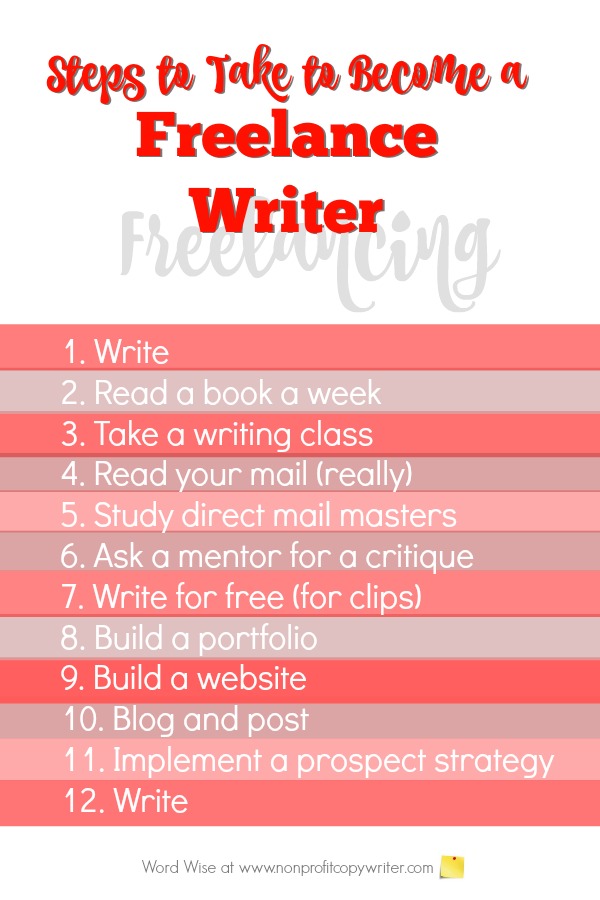
Newbie Copywriting FAQs
(Frequently Asked Questions)
Award-winning writer Kathy Widenhouse has helped hundreds of nonprofits and writers produce successful content and has gained 600K+ views for her writing tutorials. She is the author of 9 books. See more of Kathy’s content here.
Newbie copywriting can be intimidating.
As you study marketing gurus, ads, and campaigns, it’s easy to be consumed by inferiority, especially if you’re not familiar with what copywriting is.
And if you’re wearing multiple hats in your business or nonprofit – and writing is one of them – well, your inadequacy may escalate even further.
But when it comes to the writing world, here are a few insider’s secrets about getting started copywriting and becoming a freelancer:
1. Success as a copywriter can be learned, for the most part.
2. When it comes to writing copy, logic and research go hand in hand with creativity. (Just in case you feel deficient in one of those three areas.)
3. There are never enough good copywriters. There’s no reason you can’t be one of them.
If you can put together a string of words, you’re already a writer. Becoming a copywriter is then a question of acquiring a few skills … and then working hard and persistently to get better.
(It’s the “hard work” part that most wannabes can’t get
around. So if you’ve got a work ethic, read on.)
Q. What is copywriting?
Writing to persuade … whether it’s to sell a product, solicit a gift, market a service, or convince the reader of a viewpoint.
Q. What are some key skills I need to become copywriter?
A copywriter is a unique combination of writer, researcher, human psychologist, and marketer – one who draws on the following skills:
- Basic writing proficiency
- Persuasion
- The ability to research
- An understanding of human nature
- Insight into people and what motivates them
- Familiarity with different writing forms (such as a letter, an article, a headline, a website, a social media post) and when to use each (check out Kinds of Writing Projects to see which ones you know already)
- Appreciation for different communications streams: how a website is different from a magazine, for instance
- A love for the written word
- Persistence
Q. What are some steps I can take to become a copywriter?
- Write (preferably daily)
- Read voraciously, including at least a book a week on copywriting or writing
- Take a class
- Choose a piece copy that's proven. Read it 10 times. Write it by hand on piece of paper 3 times. Repeat with 3 or 4 good ads. See what you learn.
- Study projects by copywriting masters such as David Ogilvy, John Carlton, Bob Bly, Eugene Schwartz, Clayton Makepeace, Gary Halbert, Michel Fortin
- Get a mentor and get critiqued
- Write for free
- Build a portfolio
- Build a website. Add to it each week.
- Blog
- Create a prospecting package and get some initial clients
- Write. Always Be Writing.
Q. How long does it take to move from being a newbie copywriter to a full-fledged copywriter?
There is no certification or exam you must pass in order to be designated as a copywriter … no official course you must take in order to be recognized as a copywriter. Many successful copywriters never formally studied writing. (Having said that, instruction is truly helpful.)
Training. Many believe that because copywriting is a specific skill, Gary Halbert’s 10,000 Hour Rule applies. That is, since it takes 10,000 hours to become proficient at a skill, you will need to invest 10,000 in learning the art of copywriting before you can identify yourself as a copywriter.
Acknowledgement. Along the way, you may find you use your writing skills to persuade. Others may ask you to write for them. Although may you have not yet invested 10,000 hours in developing your copywriting skills, you feel comfortable calling yourself a copywriter.
Experience. If you have “write to sell” mindset and have at some point used your words to convince a reader to take an action, you’re already a copywriter. (How good you become is another matter.)
More on Freelancing and Newbie Copywriting
Beat Writer’s Block When You Eat the Frog First ...
Do Writers Get Imposter Syndrome? Here’s What You Can Do About It ...
How to Create a Content Calendar ...
21 Ways To Beat Writer’s Block and Jumpstart Your Project ...
Start Your Writing Day With a Quick Win and Get Momentum ...
5 Valuable Tips for Writing at Home ...
5 Non-Writing Skills Every Writer Needs ...
Newbie copywriting: kinds of writing projects copywriters do ...
Freelance Writing Jobs for Beginners: Getting Started ...
Kinds of freelance writing projects you can be paid to write ...
12 Tips for Staying Busy Writing - Productively ...
How to build a writing sample portfolio ...
Newbie website glossary, part 1: Internet acronyms ...
Newbie website glossary, part 2: 10 basic terms ...
Email and ezine terms for writers, leaders, and newbie copywriters ...
Writer's Block: 3 tips for starting your writing project ...
3 appeal letter formulas for copywriters, leaders, newbies ...
How to find Christian freelance writing jobs ...
More Freelance Writing Tips on our Pinterest board ...
Return from Newbie Copywriting FAQs to Nonprofit Copywriter home
As an Amazon Associate I earn from qualifying purchases.
Search This Site
Share This Page

Named to 2022 Writer's Digest list
BEST GENRE/NICHE WRITING WEBSITE


Stop Wasting Time!

Grab your exclusive FREE guide, "5 Simple Writing Tips You Can Put to Use in 10 Minutes or Less"









